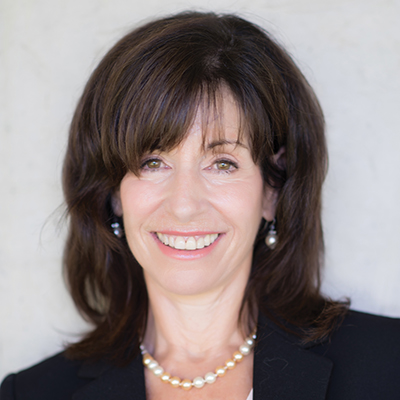Growing up, I didn’t know my family’s story. I knew that the tattoo on my father’s arm was connected to sadness and that something bad had happened. But on a deeper level, I knew not to ask — and so, I remained silent. Many years later, my husband’s casual question opened the floodgates to my father’s story, illuminating my own. The process of integrating the truth of his life as a Holocaust survivor led me to a deeper and more compassionate connection to him and to myself, and made more immediate my desire to change the world: I felt a call to leadership.
As children, when the sadness of those around us lacks an obvious source, we take the burden upon ourselves, attempting to fix that which most often is not within our control. Leaders do that, too, and perhaps women leaders in particular, given the realities of our socialization. We want to make things “right.” As the first woman CEO of the largest yoga and health retreat center in North America, I am privileged with the challenge and the opportunity to interrogate this experience of leadership — so that I might understand how best to serve. Yoga itself entails an implicit challenge. Practitioners at all levels strive for perfection — think of the iconic yogi on the mountaintop or the avid student in a neighborhood studio, striving for a perfect pose. But perfection is an illusion that disappoints — and it is de facto the judgmental conclusion that we, as we are, are not enough. Ironically, while perfection is never within our grasp, in yoga, in life or in leadership, leadership calls us to be our fallible, vulnerable selves. What does this really mean?
Leaders are accountable — and we are certainly perceived to be responsible. While our subjective experience may be one of vulnerability, those of us privileged with power understandably become the object of others’ projections and fears. The temptation is strong to reject the perceptions of others, to protect and armor ourselves. The recent Supreme Court confirmation hearings provide a painful example of aggressive, defensive armor: what it looks like to refuse vulnerability, to push away self-reflection, to gird oneself in denials and lies.
But the mission of my organization is empowering individuals and communities to express and achieve their full potential through the wisdom and practice of yoga. As a leader eager to bring Kripalu into an era of greater collaboration, access and impact, I have come to reject the leader-as-savior ethos — and the pursuit of perfection, in the bargain. The truth is, no one can achieve systemic change alone. Conscious leadership requires a call to the collective — the contributions of others. So I am working to be a conscious leader, to courageously and vulnerably engage in the practices of self-inquiry, self-awareness, self-reflection and honesty, open to feedback and able to respond fluidly. Rather than being an “object” to which my staff relates, I aim instead to be a kind of human mirror, reflecting with compassion so that I am willing to see clearly what is mine to own and inviting others to fully see themselves, while amplifying the thoughts and voices that populate Kripalu – the people whose steady daily commitment make Kripalu unique.
Holding self and others in a compassionate balance is at the heart of conscious leadership. Even as our current polarized world tempts us with responses — bravado, aggression — that beget greater polarization, what is needed is exactly the opposite: Instead of reflexive self-defense, conscious leaders cultivate open curiosity, self-inquiry and compassion. We must be willing to brave the challenge of vulnerability to truly see and know ourselves in the fullness of our being: Who am I? How am I perceived? What have I created? What is not mine to own? How can I be present to all that is needed in this moment? How can I embody self-compassion and the courage to be vulnerable? Instead of fulfilling the desire for perfection that so many leaders share, can we live fully and openly in our imperfections? It’s an intimidating set of questions, but I think with the discipline of a practice the answers are within reach — and essential, for organizations to evolve.
A Kripalu truism: Everyone who comes here, as a guest or as an employee, is in “grave danger of growing.” In fact, Kripalu’s ethos and methodology invite self-inquiry and the suspension of judgment—far from the typical stance of people who are “wired for leadership.” Shortly after I came to Kripalu in 2016, an employee engagement survey reflected an organization struggling under the weight of rapid growth and numerous transitions. As CEO, I am fully accountable for the state of the organization, but in order to free my ability to respond I needed to depersonalize so as not to react and default to the armored leader’s stance. This dilemma demanded my presence and attention. It invited me to look closely and question the illusions I held about myself and about the “perfect” leader. With time and practice that allowed for self-observation and reflection, I realized that while I had not created everything that wasn’t working, I needed to be mindful that my actions might replay or exacerbate organizational challenges. Moreover, I alone could not heal them. But I could learn to lead in a way that supported organizational and individual healing.
Vital in this process have been “conscious conversations,” or deep inquiry and listening sessions with staff, an iterative process with each department in which I and senior leaders listen to what each person has to say, making it clear that there will be no repercussions, that truth can be spoken without fear and that positive culture will be the result of people speaking their truths. These conversations can be very difficult. What gives me the stamina to stay with them is wisdom of the heart and the practice of yoga. That wisdom is accessible via embodied mindfulness tools delivered through Kripalu’s evidence-based approach to conscious leadership, RISE. Pause and breathe, pause and breathe… I ride the wave of difficult moments, I use my breath to consciously be more in my body with all that is present. My heart rate drops, my body relaxes, and as the fist of my tension unclenches, I am able to truly feel myself as I make space to see the person in front of me. I become curious about who they are, their thoughts and what they need in order to feel heard, instead of feeling defensive or under attack. At the same time, I am able to step more fully into my own power. I mirror back to those in the organization who they are, so they can be fully present, and in the process, I become more of who I am.
This practice of self-compassion creates space to be excruciatingly honest with myself about the places where I need to show up differently. But RISE, along with any other toolkit, is not a panacea: The tools only lead to transformation with the mindset and intention to foster growth in others. These conversations, in and of themselves, are culture-building within organizations. They take time and resources. The most intensive work is that of becoming more present to oneself and with one another. How can I — how can we — commit to this important work and to making these tools accessible within our organizations in the best, most powerful way?
I have been a leader for decades (primarily in academia). It’s only since coming to Kripalu, a place that explicitly encourages self-inquiry, reflection, and observation without judgment, that I embrace myself again as a student. The lessons I’m learning as CEO — of self-inquiry, self-reflection, self-compassion — empower me to more deeply answer that call to leadership. I may be from the world of higher education, but I’m really engaged today in what is truly higher learning. This is the call to leadership and to human connection that I feel compelled to answer.
We’d love to know your thoughts on Thrive stories and Quaker products. Take our quick survey here! [Sponsored]


